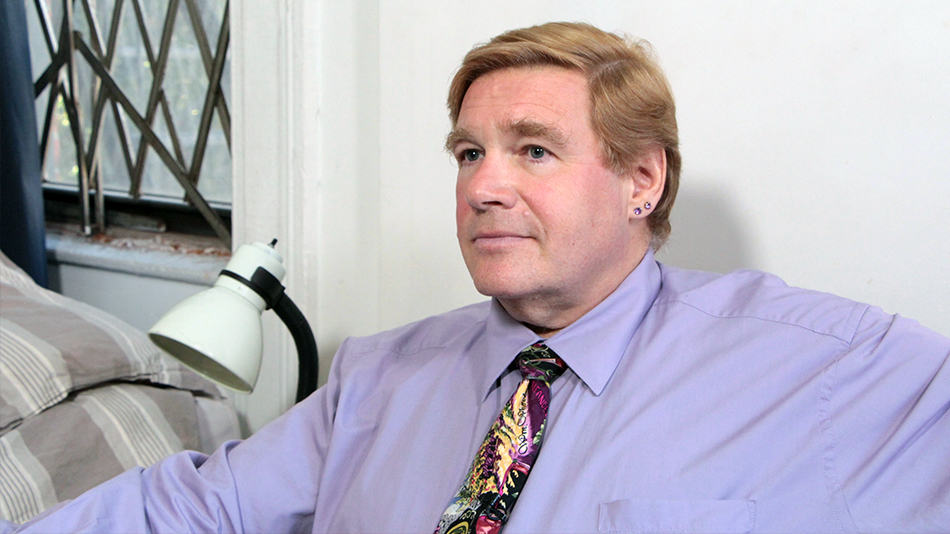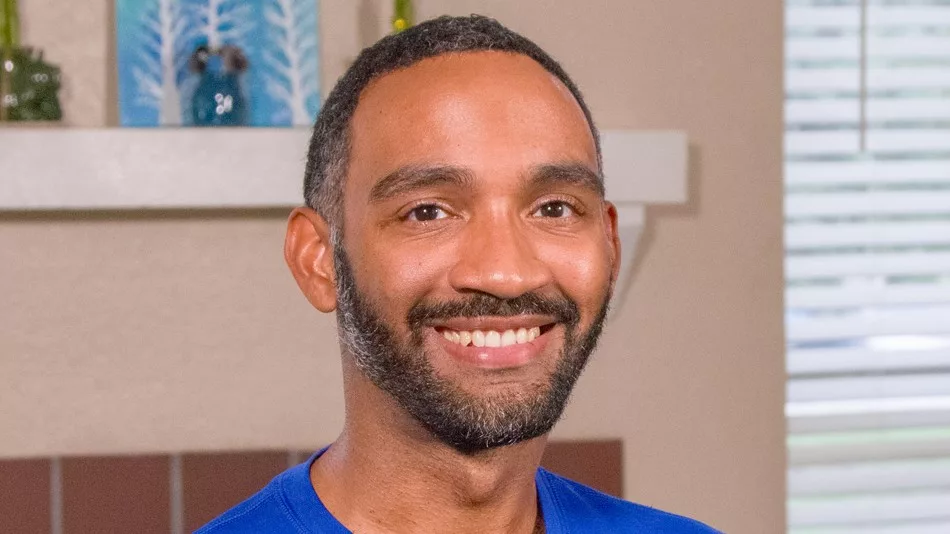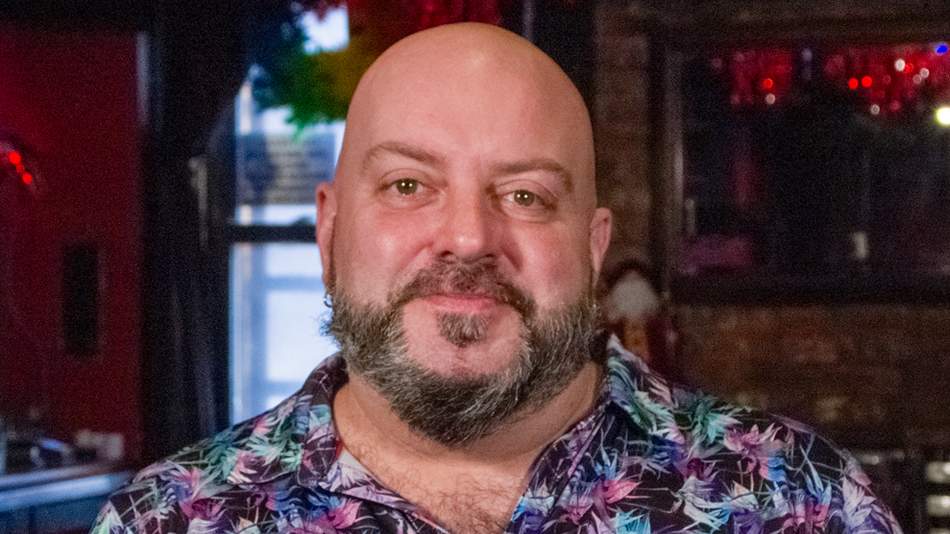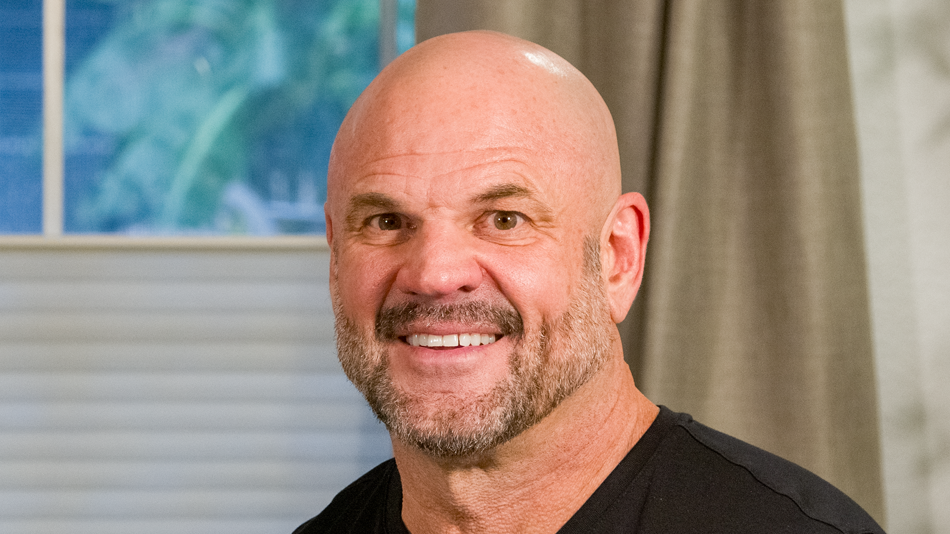
1960s: A Trip To The Met Was “The First Time I Remember Any Attraction For Men.”
I first became aware of being attracted to men when growing up in the mid-sixties, when I was around 7 or 8 years old. On Sundays, my father had possession of my brother and I. After we were in Sunday school, then he’d take us to his mother’s house, my grandmother’s house, and then in the afternoon, we’d to something cultural. Go to a movie. Go to museums.
One day, he took us to the Metropolitan Museum of Art, looking at the art, and we went to the Greco Roman statue area. Turned a corner and there was this whole hallway of, you know, statues and – both sexes but mostly men. And I really enjoyed looking at the male statues. And I didn’t know why. I mean, I just know that I enjoyed looking at them.
And I remember there were other indications of my attraction to the male body. I remember in second grade, we had a substitute teacher who was a male. And I sort of had a small crush on him. He was very good looking. He looked like Paul McCartney, who was the cute Beatle. And I just remembered I enjoyed being around him.
Around the same time, a little later, I know I used to enjoy watching on TV “Wild, Wild West” starring Robert Conrad who wore very tight pants. And a little later “Here Come the Brides” with featured Bobby Sherman, who also wore very tight pants on that show. I especially liked when they were facing away from the camera. They were very cute, too. They had cute faces, but I really liked looking at them from behind.
That’s the first time I remember any attraction for men. I mean, I didn’t understand it as such at the time. It seemed like a natural thing to me. I just felt the – I didn’t say, “I’m gonna start liking men.” There was no conscious decision about it. Any realization that it was something I shouldn’t talk about, you know, didn’t come until later.
It represented, you know, that these feelings can happen at a very early age and, you know, that I always felt this way. And it wasn’t – you know, the Kinsey scale of one to 6, I call myself a Kinsey 10.
1970s: Melba Moore Performing At Bathhouse Changes Gay Teen’s Life.
Okay, so in the early seventies when I was around 15 and attending Bronx High School of Science, still feeling attracted to boys, I would look at the boys in the locker room and gym class and wonder if any one of them were having the same kind of feelings I was. And I was hoping to explore that at some point. But then, during spring break in my junior year, I was hit by a car. And so eliminating that possibility, I had to – I was in hospital for many times and long periods and I had to – couldn’t go to the high school. I had tutors from the Board of Ed and I was just actually homebound. So as far as exploring anything about my sexuality was totally out of the question. I had my adolescence interrupted.
So it wasn’t until I was more mobile again, a couple years after that, around 17, that – what I would do – Radio City was showing some old, classic movies like “Singing In The Rain” and “Lawrence of Arabia.” I would go down by myself, see the movie, see the show, and then walk from Radio City down to Times Square 42nd Street, which was a much sleazier place than it is now. And very interesting. Anyway, there were a magazine – porn shops – and I would go and buy porn. And I’d go to the gay section and find what I wanted and then stuff it under my shirt and go home and explain that, “Oh, the reason I was late was because the trains were messed up.” So that was essentially my first beginning of, again, exploring my sexuality.
I thought gay life would be difficult to conduct openly. And that it has to keep it secret. I was hoping, I guess, maybe that I could sow my oats for a while and then get fixed. I actually even saved an article by one of the doctors who claimed to be able to do that.
One morning, when my mother was out walking the dogs, I turned the TV on. I was watching Pat Harper and – who had a talk show mid morning. And they were filming Melba Moore performing at the Continental Baths, which had become well-known as a gay bathhouse when Bette Midler had performed there are a few years earlier and became a popular venue for performers. It was a notorious gay bathhouse.
After they interviewed Melba Moore, they interviewed one of the patrons. And one of them was very young. He looked about 16. But he said that his parents knew and accepted him and that he was, you know, living a satisfactory gay life. And I thought, I was stunned. I said, well now it really is possible. That’s when I decided that I wanted that for myself, too. And I wasn’t gonna hide anymore or try to change, but be my honest self. That was really the first time I decided to accept myself and my sexuality, And decided that I wanted to live openly and happily. So I realized that was possible and that I wanted that for myself and not to have to keep a very important part of me hidden from those closest to me.
Coming Out To Parents In 1975: “You’re Our Son. We Love You. Be Home By Midnight.”
Okay, so around in 1975, just a little before I turned 18, I was talking with my brother. And he happened to mention that he and a friend of his who lived in the building would dogsit for this older gentleman who would go out on trips and that, while they were doing that, they would look through the guy’s porn.
And I said, “Well, I’ve got some porn of my own but I don’t think it would interest you very much.”
And he said, “Oh, what do you mean?”
And so I said, “Well, your big brother is gay.”
And he just looked at me and said, “I kind of thought you might be.” And, you know, he was totally cool with it.
As an eighteenth birthday present to myself, I signed up with this sort of a personals ad – a private personal ads listing. You would get these ads and then respond to them by sending a letter to the organization. They forward it to whoever, you now, or in some cases they could even provide phone numbers. So I started meeting guys that way.
Well, one time I was supposed to meet this guy. And so I told my mother I was going out the next day. And then early in the morning, he calls me and says he can’t make it. So then later, I tell my mother, well, I decided not to go out after all.
She goes out with the dog, comes back and then asked me, “Did that phone call have anything to do with your not going out?”
And there I was, sort of trapped. I didn’t – couldn’t come up with an excuse, so I just told her flat out, “Mother, I’m homosexual.” She didn’t take it very well. And I know sometimes she kept secrets from my father, but this was one thing she was not going to keep secret. I know, you know, she couldn’t handle it by herself. So I knew that she would be telling him.
In the meantime, not knowing how my father would react for sure, I packed a suitcase and then went to my part time job. I had no idea where I’d be going now. I was nervous the whole time and came home, ate dinner with my father and my mother and brother. And after dinner, I went to my room and I assume that’s when my mother told my father.
And shortly afterwards my father came into my room and he said, “We love you. You’re our son. We don’t want you to move out. You’re welcome to stay here. You’re 18 and you can do what you want. But we prefer you stay home, stay here. You just have to obey some rules like be home by midnight and things like that.” You know, curfew.
The the rules didn’t really – weren’t intended to – weren‘t issued because I was gay. It was just – I lived in the Bronx. It was dangerous traveling at night and, you know, they’d feel safer that I was home now by certain time.
Coming out to your family is a pretty significant event in a gay person’s life. And you never can be sure how they’re going to be – how you’re going to be accepted or whether going to accept you or you know, throw you out. I was really relieved that my parents did not throw me out and allowed me to, you know, go out and explore. As long as at home by midnight-ish.
1981: After Protest At Harvard, “I Was Out For All The World To See.”
After high school, I took some time off because at the time I didn’t think I wanted to go to college. But once I decided I wanted to become a minister, I went to college and then, you know, in my junior year started applying to divinity schools. Since I was doing so well in college and I was there on full scholarship, people told me that I should apply to, you know, some top-line schools. So I did and I was accepted at Harvard Divinity School.
Since most of my church work was with Metropolitan Community Church, which was essentially a gay church, I was essentially being openly gay on my application. I was sought out immediately at the first new student mixer by one of the staff, who had been the adviser for the gay group there. And he told me while it had been active in the 70s, by this time in 1981, when I started at Divinity School, it had kind of died out and they wanted to revive it again and would like my help with that.
Myself and a couple of other gay students, we were able to sniff out for who were known, revive the group. So by the next year we had a regular space as part of orientation week. Time and a room, you know, for interested students to come find out about gay life at Harvard Divinity School.
In the meantime, before that happened, a couple of us started attending the undergraduate gay group. And we found out that while all the graduate schools had gay-affirming policies, the undergraduate students did not have that. And they felt that it was unfair and wanted to change that and asked for help. So a protest March was organized and we marched around the campus to all the different graduate schools that had the policy – the business school, law school, the divinity schools, school of architecture.
March was on a cold Sunday in January. It was cloudy. There was snow on the ground already. You know, it had snowed. And it was cold. You know, I was all bundled up. And we just marched to each campus and stood there for, you now, for awhile, you know, holding our signs and talking with people who came by and what what we were doing.
The march lasted like – I don’t know – like, 2 to 4 in the afternoon or something like that. And the crowd dispersed and I went to my usual MCC service in the evening, which was held at [unintelligible] church, which is a historic church in Boston.
Gay Community News published bi-weekly and I picked up the next issue and there I was on the, well, the front page, under – below the fold. Me carrying a sign, the sign I was – that I had made, you know, “Harvard Divinity School Lesbian Gay Caucus supports undergraduate LGBTQ.” And I hadn’t known the picture was taken. I didn’t know that there was even any press there. So that was a surprise. It was, yeah, and maybe that I was achieving something. And, of course, well then, I was out for all the world to see. I mean, whoever read the GCN, I guess. It was pretty cool. Pretty nice feeling to be visibly active and trying to achieve something positive for my community.
While we achieved some visibility, there was no immediate change in the policy but it was changed a couple of years later, to my knowledge, so that they had the same policy as the graduate schools of LGBTQ affirming.
I hope people watching this see that living an openly gay lifestyle can be positive thing, can see the – how things have changed. But of course things can always change again, so also to be vigilant about protecting your rights.
1985: “Heartbreak Is A Natural Part of Relationships.”
Here I am in Boston in 1985. After taking a hiatus from Divinity School, I had resumed taking classes again and I met my third boyfriend at a dance bar called Buddy’s in Boston. He lived in Manchester, New Hampshire and I lived in Dorchester in Boston. So I would see him on the weekends. He would come down on Saturday, stay overnight, and sometimes stay through Sunday and attend MCC with me. So that was going well I thought.
It was – sometimes I wouldn’t see him every other weekend. He was working and going to school. He worked at Blue Cross Blue Shield so I could call on an 800 number. And one day in December, I got a typewritten letter from him. I was on my way to class. I was taking the subway from Dorchester to Harvard – to Cambridge. I opened up the mailbox and there was a letter from my boyfriend. I opened it and there was a typewritten letter saying that he had to end our relationship.
That really hurt a lot. I was taking a pastoral class at the time and we were gonna do some role playing about counseling. So I went to class. I was getting on the T – what they call the subway up there – vaguely thinking of throwing myself in front of a train. But I went to class, my counseling class, and instead of the scenario I had prepared for a roleplay, I had this real scenario of being dumped on my boyfriend. And I was able to discuss my feelings around that and have a good cry.
It was funny a few years – a couple years later, I joined a dating service and they matched us up. So he called me. He wasn’t sure I was the same person because I was living somewhere else, but I was. We talked for a while and I had just had surgery so I was on crutches and I said, well, you know, now is not a good time to get together. And after that we lost touch.
Eventually after I moved back to New York, he got in touch with me through Facebook and he told me how bad he felt of way he dumped me and that he really cared for me, which made me feel a little better. I had up to him counted only as – that I had 2.5 boyfriends. I wasn’t sure since he dumped me how whether my love for him was rather one-sided on my part, but since he said he did, so I started coming in as a full boyfriend. So I had 3.
I haven’t had a significant relationship since. I have – I guess I was afraid of being hurt again. And I’ve been more protective of my feelings and not being so vulnerable. But I guess heartbreak is natural part of relationships and something you need to work at and be able to communicate. So that’s a lesson I’ve learned.
Fear Surrounding AIDS In The 80s: “I Might Have Already Been Infected. I Didn’t Know.”
I started hearing about AIDS or as it was called in the press at that point, Gay Related Immunodeficiency Syndrome or GRID. It was first, there was just a gay disease and there are all kinds of rumors around that. But I read that of surest protection was to wear a condom during sex so that’s what I started doing. It became much more visible in the public eye and 1985 when Rock Hudson died, and at that point I was dating my boyfriend who later dumped me. But at the same time I was living in Dorchester with a roommate. And he was someone who was also seminary student.
Funny how we met – I had been going to the baths in New York before I moved up to Boston, and mentioned to someone I went home with that I was going to Harvard Divinity School in the fall and he said that he had a friend who would be going to a Episcopal Divinity School in the fall and that we should get in touch. This friend of his got in touch with me and we talked on the phone. We never actually met until we both showed up for rehearsals for the Boston Gay Men’s Chorus, which was forming in the Spring of ‘82, I believe.
We became roommates shortly after that. I had to move from where I was living and he had someone lined up as a prospective roommate who backed out. So there we were living together in Dorchester. Now when I was not dating anyone and when we were both horny enough or drunk enough, we had fooled around and I couldn’t remember whether or not we had worn condoms.
I eventually moved out after I had broken up with my boyfriend and I moved to a place of my own. But I ran into my former roommate in Provincetown where he was working out of a shop at one of the hotels there. And he happened to mention that he was HIV positive. Having possibly had unsafe sex with my roommate, and I know certainly before I moved to Boston, I was going to the baths and not using any protection, so I might have already been infected. Did I infect him? I didn’t know.
When I got back from Provincetown, I went and had myself tested and it was a very nerve-wracking two weeks. When I went to find the results, I brought a friend with me and thankfully found out that I was negative. Back in those days, it was – finding out that you were HIV positive was possibly a death sentence. I had acquaintances in the chorus – there were several people who passed away. There are people at my job where I was working who passed away from AIDS-related diseases. So it was not – it was not as hopeful a prognosis as as it is nowadays, when it’s not a death sentence.
It’s funny though, my former roommate – I ran into him at one of my favorite bars – both of our favorite bars in Boston. When I ran into him there, he told me he had moved to New York and I was planning to move back to New York in a few months later. And so we said, well, we’ll keep in touch. One afternoon, after I attended my service at MCC in New York, I had – was going to meet some friends near Madison Square to play games. I got there early so was sitting in the park there at Madison Square. And I saw someone conducting a service for the homeless and it was my former roommate. So we caught up there and he was doing fine. And my roommate now is still, you know, is still alive and living and healthy.
So it’s not the death sentence it was before. But it doesn’t mean just because you can live with AIDS nowadays, doesn’t mean that you should become casual about protecting oneself and you should always wear protection. And stay healthy.






Share